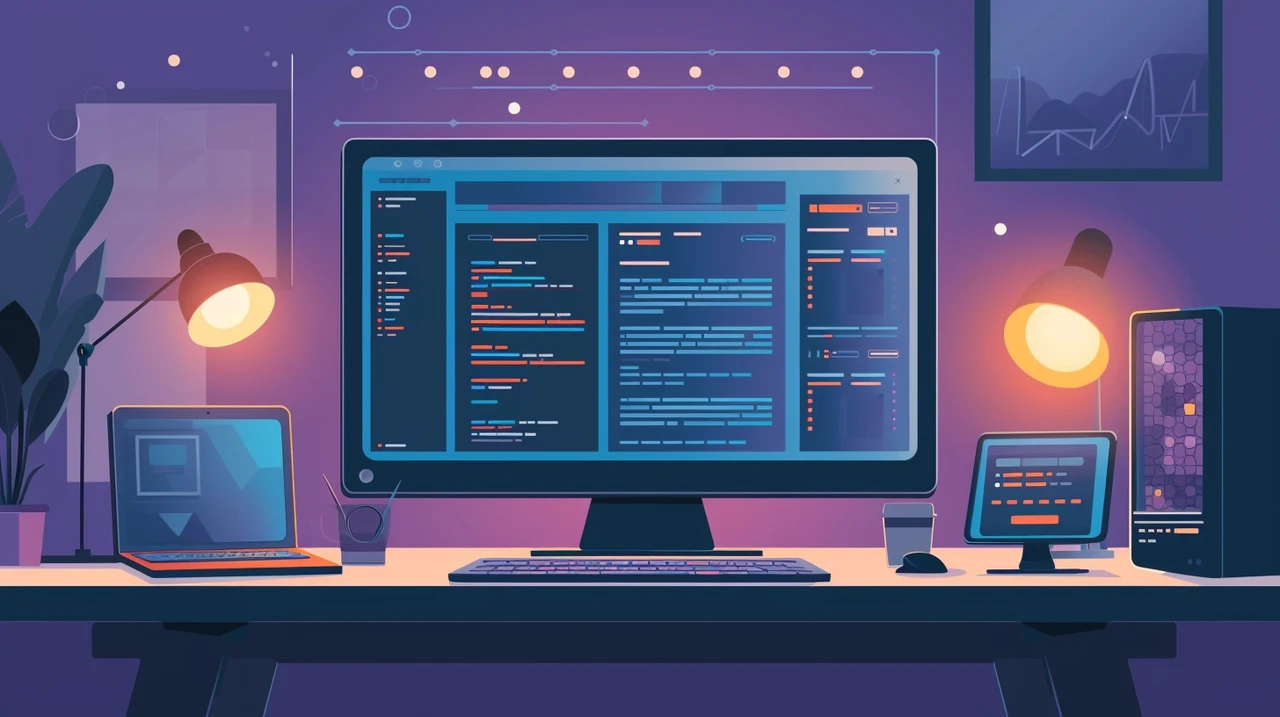
The field of artificial intelligence (AI) is advancing at an unprecedented pace, and mastering the development of AI agents is becoming increasingly essential for professionals in the tech industry. Unlike simpler chatbots, AI agents are sophisticated systems capable of semi-autonomous functions such as data analysis, user interaction, and decision-making. This comprehensive guide will walk you through the critical steps and tools you’ll need to excel in AI agent development, transitioning from basic programming to deploying intelligent systems in various business settings.
Understanding AI Agents and Essential Skills
AI agents are designed to perform tasks autonomously or with minimal human intervention, ranging from analyzing large datasets to providing personalized customer support. To build these advanced systems, you’ll need a strong foundation in technical skills like backend development, data structures, algorithms, and a thorough understanding of AI principles such as machine learning, natural language processing, and computer vision. Equally important are soft skills such as effective communication, problem-solving, and adaptability, as AI agent development often involves collaborating with cross-functional teams and stakeholders.
Proficiency in programming languages, particularly Python, is crucial due to its simplicity, versatility, and widespread use in AI development. Python offers a rich ecosystem of libraries and frameworks specifically designed for AI and machine learning, such as TensorFlow, PyTorch, and scikit-learn, making it an ideal choice for building AI agents.
Step-by-Step Learning Pathway for AI Agent Development
- Foundation Building: Begin your journey by grasping the basics of AI agents and their underlying concepts. Set up a Python-based development environment and select an Integrated Development Environment (IDE) like PyCharm or Visual Studio Code that fits your workflow. Familiarize yourself with Python syntax, data types, control structures, and object-oriented programming principles. This initial step is vital for understanding fundamental AI programming concepts and building a solid foundation.
- Skill Enhancement: Progress to more intricate aspects of AI development, including the use of specialized tools and APIs essential for creating functional AI systems. Dive into machine learning algorithms, such as supervised learning, unsupervised learning, and reinforcement learning. Explore deep learning frameworks like TensorFlow and PyTorch to build neural networks and leverage their power for complex tasks. Familiarize yourself with package management tools such as Pip and Conda to efficiently handle libraries and dependencies.
- Practical Application: Put your knowledge to the test by starting a real-world project. Choose a project that aligns with your interests, such as healthcare, finance, or e-commerce, and identify a problem that can be solved using AI agents. This hands-on approach not only boosts your learning but also prepares you for professional challenges, allowing you to explore innovative AI applications tailored to your interests. Implement data preprocessing, feature engineering, model training, and evaluation to build a functional AI agent.
- Deployment and Business Integration: Learn how to deploy AI agents using serverless architectures, such as AWS Lambda or Google Cloud Functions, which offer scalability, flexibility, and reduced operational costs. Understand the best practices for packaging and deploying AI models, ensuring their reliability and performance in production environments. The next crucial step involves integrating these AI systems into existing business processes, requiring skills in system integration, API development, and data pipelines to ensure seamless operation and value delivery.
- Professional Growth and Monetization: Leverage your AI development skills to open new career paths and monetize your expertise. Whether you opt for freelancing, joining startups, or working in established companies, the expertise in AI agent development offers numerous opportunities across industries. Continuously update your portfolio with projects that showcase your skills and demonstrate your ability to solve real-world problems using AI. Networking and ongoing education are vital for career advancement, as the AI field is constantly evolving, and staying ahead of the curve is essential for success.
Here are some other articles you may find of interest on the subject of creating and using AI agents for a wide variety of different applications :
- OpenAI announces development of AI agents
- New OpenAI AI Agents what are they and why do they matter
- How to build anything with AI agents
- How to build an AI Agent run virtual business
- Google Gemini AI Agents unveiled at Google Next 2024
- Build advanced AI agents and assistants using Python
- Creating AI agents swarms using Assistants API
The AI landscape is continually evolving, with new techniques, tools, and best practices emerging regularly. Embracing a mindset of lifelong learning is crucial to keep your skills relevant and advanced. Regularly attend conferences, webinars, and workshops to stay updated on the latest advancements in AI agent development. Follow influential researchers, practitioners, and thought leaders in the field to gain insights into innovative techniques and industry trends.
Mastering AI agent development is an ongoing journey that requires dedication, curiosity, and a willingness to adapt. By following the steps outlined in this comprehensive guide, you’ll be well-equipped to tackle the challenges and opportunities in this exciting field. Embrace the power of AI, and unlock a world of possibilities in building intelligent systems that transform businesses and improve people’s lives.
Video Credit: Source
Latest Geeky Gadgets Deals
Disclosure: Some of our articles include affiliate links. If you buy something through one of these links, Geeky Gadgets may earn an affiliate commission. Learn about our Disclosure Policy.